Team
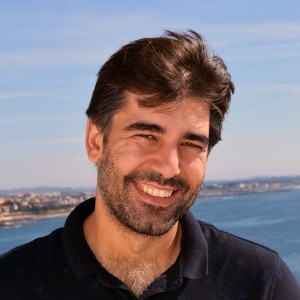
Benjamín Costas
Researcher - Team Leader
| Benjamín completed a Masters in Aquaculture by the University of Algarve in 2006, and in 2011 achieved a PhD degree in Animal Science by the University of Porto. Benjamín is currently Principal Researcher at CIIMAR and Head of Aquatic Animal Health, a young and strongly motivated team highlighting nutritional immunology as main research line. Dr. Costas is passionate about aquatic animal health and welfare and is actually coordinating several national and international projects in those topics. Main research is targeting novel strategies to improve fish disease resistance and welfare as well as on non-invasive biomarkers of animal health. |
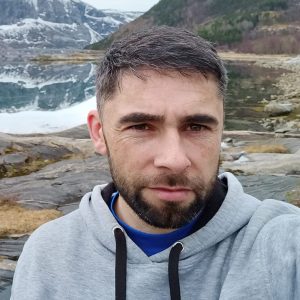
Sérgio Fernández-Boo
Researcher - Team Co-leader
Sérgio graduated in Marine Biology by the University of Santiago de Compostela. During my PhD I have been working in the interaction between the clam Ruditapes spp. and the parasite Perkinsus olseni. After that, I joined the EU Reference Lab for Bivalve Diseases (LRUE/IFREMER) in France. Since 2016, I am working at Aquatic Animal Health group, first as a researcher in the project INSEAFOOD within a postdoc grant and currently I have an Auxiliary research contract from FCT. The main areas of my work are the interaction host/parasites and the search for biomarkers of disease resistance in invertebrates using genomics and proteomics as the main source for biomarker characterization.
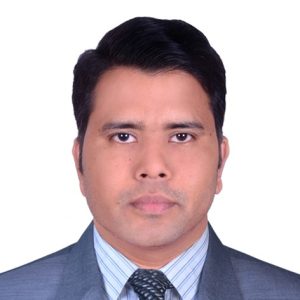
Aminur Rashid
PhD student
Aminur is a Ph.D. student in the Department of Marine Biotechnology and Aquaculture at the University of Porto, affiliated with the Aquatic Animal Health group at CIIMAR. He holds a Bachelor’s degree in Fisheries and a Master of Science in Aquaculture from Sylhet Agricultural University, Bangladesh. He pursued a second master’s degree in Aquaculture with a major in health management from Ghent University, Belgium. His Ph.D. research focuses on exploring the potential of bioactive compounds from halophyte residual biomass to enhance fish health and disease resistance. His professional motto is to alleviate hunger through aquaculture.
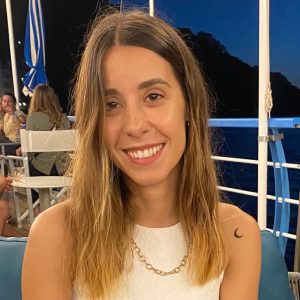
Ana Garcia
PhD student
Ana graduated in Biochemistry at University of Minho, where she persued a Master’s degree in Molecular Biology, Biotechnology and Bioentrepreneuship in Plants. Since 2018, Ana has been a member of A2S team, contributing to several projects. In 2021 she enroled a PhD under the doctoral program Animal Sciences (nutrition), in collaboration with Nord University, in Norway. Ana PhD studies are in the scope of the European project AQUACOMBINE. Her research is focused on exploring the inclusion of halophyte plants into aquafeeds, aiming to improve fish health and aquaculture sustainability, through green and circular economic concepts.
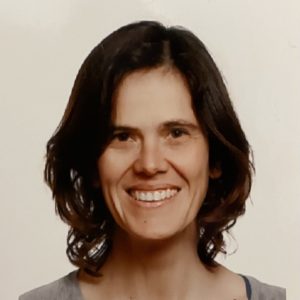
Ana Rocha
Researcher
Ana graduated in Zootechnical Engineering in 2000 (UTAD, Portugal) and completed her PhD degree in Biological Sciences in 2008 (University of Valencia, Spain). She then performed several post-doc stays at the University of Cologne, the Spanish National Research Council and Uppsala University. Presently, her research aims at developing solutions and tools to improve farmed fish larvae health based on transgenerational immune priming and “in ovo” delivery of immunostimulants.
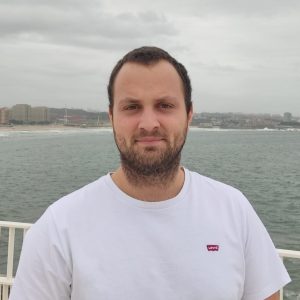
André Cunha
PhD student
André is graduated Aquatic Sciences and holds a Master’s degree in Marine Sciences – Marine Resources, by University of Porto. Currently he is a PhD holder for the Animal Science Doctoral Programme from ICBAS – University of Porto. His PhD thesis is focused on immunomodulatory and antibody delivery potential of microalgae supplemented diets, as a strategy to enhance farmed fish health and welfare.
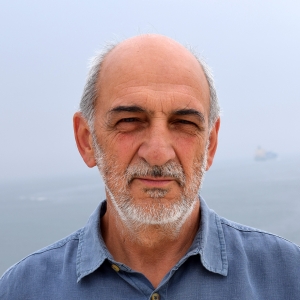
António Afonso
Researcher
António is a Professor at various levels of training in the area of Marine Sciences, namely Vertebrate Biology, Ichthyology, Aquaculture and Fish Immunology. He is also a member of the Scientific Committee of the Degree in Sciences of the Aquatic Environment, of the Master in Sciences of the Sea – Marine Resources, and conductor of several disciplines. Prof. António Afonso bases his work on studying the effects that common aquaculture practices have on the fish’s innate immune system, through basic and applied research. In addition to the more fundamental aspects mentioned above, Prof. António Afonso has developed innovation projects in aquaculture in partnership with companies dedicated to this branch of activity, where the greatest attention has been related to aquaculture in estuarine and coastal environments.
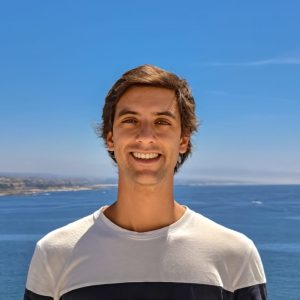
Bernardo Pereira
Technician
Bernardo graduated in Biology from the Faculty of Sciences of the University of Porto (FCUP) in 2018 and is currently a master’s degree student in Marine Sciences – Marine Resources at ICBAS, University of Porto. He has a background in ornamental fish handling/welfare and sustainable aquaculture (RAS system). His main interests are sustainable aquaculture, animal health and welfare, ethology, ecology and species conservation.
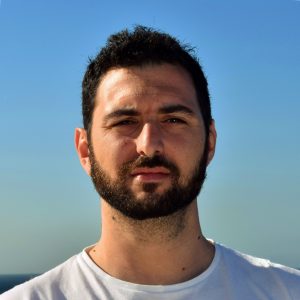
Bruno Reis
Researcher
Bruno graduate in Biochemisty from FCUP (University of Porto), Msc degree holder in Quality control from FFUP (University of Porto) and a Post-doc in Animal Science from ICBAS (University of Porto). Currently, a research fellow at Animal Health and Aquaculture Group, from CIIMAR. My main research interests to date have been, environmental toxicology and fish sustainable nutrition and health. Currently, I have been focusing in fish immunological status and response and how to improve it, through novel and sustainable fish feed additives focusing on microalgae biotechnology.
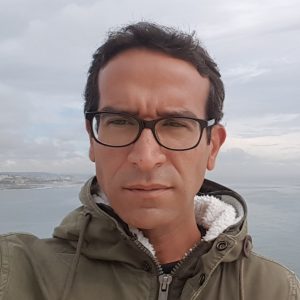
Carlos Fajardo
Researcher
Graduated in Marine Biology by the Universidad de Oriente (Venezuela) in 2007, acquired the Master degree in Molecular Biology in 2011 by the University of Los Andes (Venezuela), and the PhD in Agri-food Resources by the University of Cadiz (Spain) in 2019. In brief, I have published until now 17 papers in international peer review journals, with a total of 218 citations, h index 8, and i10 index 7. Currently, my main line of research is focused on the generation of transgenic Chlamydomonas reinhardtii strains that express RNAi, to be used in antiviral and antibacterial therapies applied to aquaculture sector
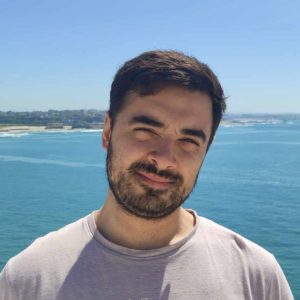
Christopher Pimentel
PhD student
Christopher is a PhD student currently affiliated with the Aquatic Health Group at CIIMAR.
He has a Bachelor’s degree in Environmental Biology and a Master’s degree in Biodiversity and Biotechnology both from the University of the Azores. After working for almost 3 years as a lab technician for the genetics department of the Hospital do Divino Espírito Santo in São Miguel he decided to persue his PhD in a completely new field of study. His PhD is in the area of animal nutrition and welfare and the theme of the thesis is focused on developing aquafeeds in order to improve stress and disease resistance in Atlantic salmon.
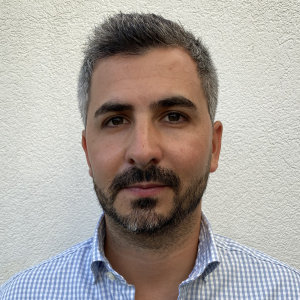
Diogo Peixoto
Researcher
Diogo is a Biology graduate from the University of Évora and holds a Master’s degree in Aquatic Biological Resources from the Faculty of Sciences at the University of Porto. Currently, he is a PhD candidate at the School of Medicine and Biomedical Sciences (ICBAS) and a member of the Aquatic Animal Health team at CIIMAR, in collaboration with the University of Cadiz (Spain). Throughout his professional journey, he has garnered recognition with three awards and honors and has actively contributed to 12 research projects, with one of them in the role of principal investigator. His research line is focus on fish metabolism and on the bi-directional pathways between neuroendocrine and immune systems.
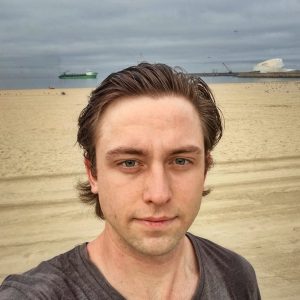
Felipe Schoninger
MSc Student
Felipe is a master’s student in Applications in Biotechnology and Synthetic Biology with experiences in research fields such as biochemistry, microbiology and cell and molecular biology. He is currently working as a technician for the A2S team

Francisca Silva-Brito
Researcher
Francisca graduated in Biology (2012) from ICBAS-University of Porto, holds a MSc (2014) in Aquaculture and a Ph.D (2021) in Animal Science granted by ICBAS-University of Porto. She is currently working in A2S team in the framework of the project MICROBOOST. Her main research interests are focused on looking for sustainable dietary strategies to improve immunity and stress response of farmed fish.
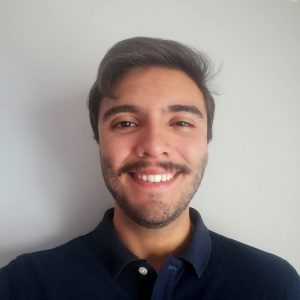
Francisco Cunha
Technician
Francisco graduated in Marine Biology on the University of Algarve in 2020. Currently, he is enrolled in the Marine Sciences – Marine Resources Masters, Fisheries and Aquaculture specialization, on the Institute of Biomedical Sciences Abel Salazar (ICBAS) of the University of Porto. Right now, his research focuses on fish immunology in aquaculture, mainly the mucosal health of Senegalese sole. Besides immunology, his interests include fish nutrition and health, welfare and sustainability in aquaculture, and fisheries.
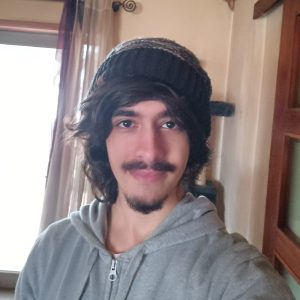
Gonçalo Pinto
MSc Student
Gonçalo graduated in Biology from FCUP in 2023, where he interned with the A2S team, focusing on the immunology of turbot and halibut. He is currently pursuing a Master’s degree in Aquatic Biological Resources, and has returned to the A2S team to conduct my thesis. His research aims to determine whether diets supplemented with methionine have a positive impact on the immune defenses of Atlantic salmon when infected by the salmon louse.
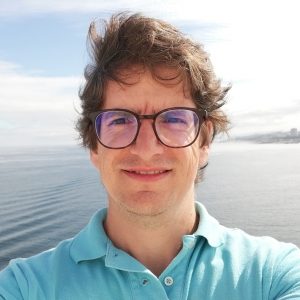
Gonçalo Themudo
Researcher
Gonçalo is a biologist, specialized on data analysis of genetic and epidemiological data. He completed his MSc at the University of Porto (2005), and PhD at the University of Leiden (2010) studying spatial and temporal patterns of genetic diversity of marbled and crested newts.
His first post-doc at the University of Copenhagen and University of Southern Denmark (2009-2012) focused on the spatial spread of infectious diseases in Denmark. In 2012-2013, he studied genetic variability of honeybees in Europe and genomics of non-model organisms using ancient DNA at CIIMAR – University of Porto, in collaboration with the Center for GeoGenetics.
From 2014 to 2017, he worked on uses of second generation DNA sequencing in forensic contexts and on the genetics of mental diseases, at the University of Copenhagen. From 2017 to 2019, he focused on epigenomics and metabolomics of mental disorders at the Mental Health Center Sankt Hans, Capital Region of Denmark. In 2019, he returned to CIIMAR to work on evolutionary biology of vertebrates, in particular aquatic animals. In 2022, he joined Ce3C to study the genomic epidemiology of Mycobacterium bovis. In 2023, he once again returned to CIIMAR, joining the Animal Health and Aquaculture team, under the IGNITION project.
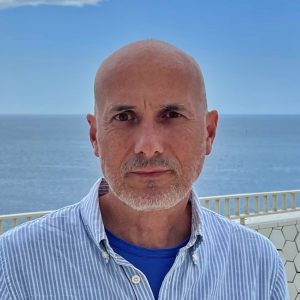
Gregorio Molés
Researcher
Gregorio is a postdoctoral researcher at CIIMAR. He graduated in Biological Sciences from the University of Murcia, Spain and received his PhD in 2011 in Science and Technology of Animal Production from the Polytechnic University of Valencia, Spain. He has performed several postdoctoral stays at the Spanish National Research Council (IATS-CSIC and INIA-CSIC) and at the Uppsala University in Sweden. Currently, his research aims at developing new tools and cost-effective technologies based on recombinant antibodies, to enable rapid, real-time and on farm monitoring of fish health and fish performance.
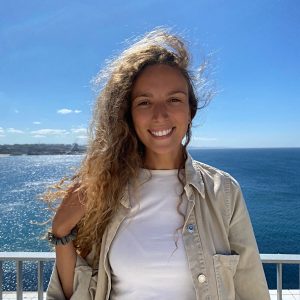
Inês Carvalho
PhD student
Inês graduated in Applied Biology at the University of Minho in 2018, concluded her Master’s degree in Marine Sciences – Marine Resources at the University of Porto in 2020. Currently, she is a PhD student funded by the Foundation for Science and Technology (FCT). She is enrolled in the Doctoral Programme in Animal Science at the Institute of Biomedical Sciences Abel Salazar (ICBAS, Portugal), collaborating with the Aquatic Animal Health team at CIIMAR, Portugal, and CISA-INIA-CSIC, Spain. Her research focuses on the impact of dietary methionine supplementation on fish immune responses, including mucosal immune responses, particularly during inflammation insults.
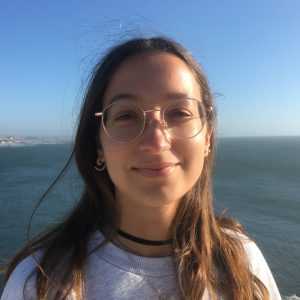
Inês Ferreira
Researcher
Inês graduated in Marine Biology and Biotechnology by the Polytechnic of Leiria in 2015 and holds a Master degree in Aquaculture granted by the same institute in 2018. She has developed work as research fellow in Cetemares (Marine Sciences R&D, Education, and Knowledge Dissemination Centre) in fish immune status and research field work in the framework of the project BE4AQUAHEALTH (MAR-02.05.01-FEAMP-0013). She is currently a PhD student at CIIMAR funded by FCT (SFRH/BD/147750/2019) in collaboration with IBMC/i3S. Her work is related to the infection mechanisms of Tenacibaculum maritimum, a pathogen with devastating consequences for aquaculture industry.
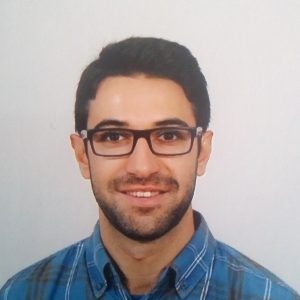
João Estevão
PhD Student
João holds an integrated Master degree (MSc) in Biological Engineering from University of Algarve, Portugal. He worked as an Intern at the Centre of Marine Sciences (CCMAR, Algarve, Portugal) and at the King Abdullah University of Science and Technology (KAUST, Saudi Arabia). João is currently a PhD student in Animal Science at the Aquatic Animal Health (A2S) team working at the Interdisciplinary Centre of Marine and Environmental Research (CIIMAR) facilities. His research line is focused on the creation/ identification of molecular tools for a better diagnosis of mollusc diseases and selection of pathogen-resistant families using molecular markers.
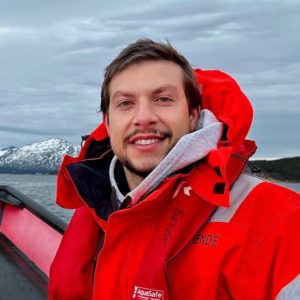
Lourenço Ramos-Pinto
Researcher
Lourenço holds a Biology degree from the University of Aveiro (2012), a Master’s in Marine Sciences from ICBAS-UP (2015), and a PhD in Animal Sciences (Nutrition) from ICBAS-University of Porto (2020). He researched fish immunonutrition within the Fish Nutrition and Immunobiology Group of CIIMAR, focusing on immune modulation under the SANFEED program funded by FCT and SPAROS Lda. Lourenço’s current interests lie in sustainable aquaculture optimization through nutrition and immune system modulation. He participated in the H2020 project AQUACOMBINE, exploring halophytes’ potential as fish and shrimp immune-modulators, and is Co-PI in the national project AQUAVIP for enhancing fish antiviral responses. Engaged in projects like IMMUNAA, INFLAMMAA, ATLANTIDA, BREEDFLAT and MICROBOOST, he also collaborates with industrial partners like BIOMAR, PHILEO, and SPAROS for immune-stimulating additives and vaccine efficacy. Presently in the A2S team for the GRINNAQUA project, Lourenço focuses on functional feed research to enhance fish and shrimp well-being.
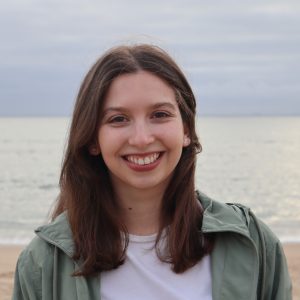
Helena Barbosa
Technician
| Helena graduated in Aquatic Sciences at the University of Porto in 2018. In 2022, she completed her Master’s degree in Applied Marine Biology at the University of Aveiro, where she studied biochemical markers related to metabolism and oxidative stress in bivalves, from an ecotoxicological perspective. Currently, Helena is a research technician in the Aquatic Animal Health group (A2S). |
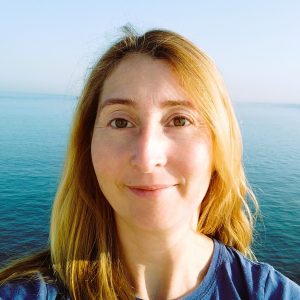
Marcia Saraiva
Researcher
Marcia graduated in Biotechnology Engineering by the Polytechnic Institute of Bragança,
holds a master degree in Microbiology by the University of Aveiro, and a PhD in Molecular Biology
by the University of Aberdeen (Scotland). She is currently a junior researcher in the A2S team
working on the Microboost project. Her research focuses on mechanisms that enable an organism’s
adaptation under environmental, physiological, or genetic challenges and how they can be, directly
and/or indirectly, used to disrupt pathogenicity.
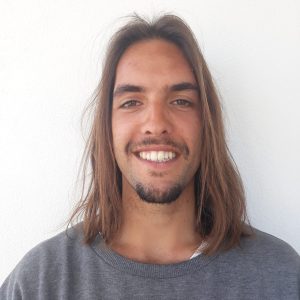
Manuel Monteiro
Technician
Manuel holds a Bachelor’s degree in Marine Biology from the University of Algarve, and a master’s degree in the Marine Sciences – Marine Resources programme at the Abel Salazar Institute of Biomedical Sciences. My goal is to study immune parameters and stress biomarkers in aquaculture fish. My areas of interest include fish immunology related to nutrition and sustainable aquaculture.
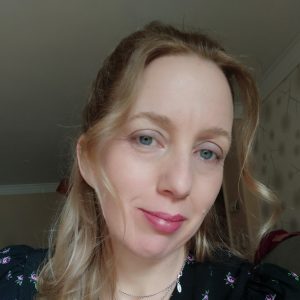
Mariana Hinzmann
Researcher
Mariana is a post-doc researcher at CIIMAR, studying the immunity of aquaculture species. She graduated in Biology from U. Aveiro in 2002 and in 2005 master’s in Advanced Biomolecular Methods. Her research began with microalgae, focusing on toxic species involved in bivalve bioaccumulation processes. In 2016, she obtained her Ph.D. in Biomedical Sciences from U. Porto (bivalve immunology). Since then, she has been working with marine fish and shellfish species, linking algae-based diets and other stressors to immunity and overall health of the animals. She is passionate about science communications and has given lessons and presented outreach materials.
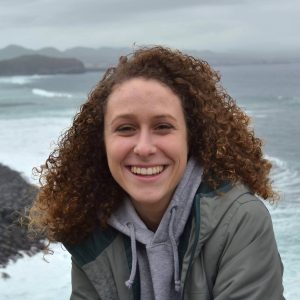
Mariana Vaz
PhD student
Mariana is graduated in Marine Biology and Biotechnology (2019), and Master in Aquaculture (2022), by the Escola Superior de Turismo e Tecnologia do Mar, Polytechnic of Leiria. She was a research fellow (MARE – Polytechnic of Leiria) in the BE4AQUAHEALTH project: national screening of aquaculture fish pathologies: a commitment to prevention, and research fellow (MARE – Polytechnic of Leiria) of the LUCTA project – Evaluation of the effect of extracts in sea bass infected with nodavirus. She is currently a PhD fellowship at CIIMAR in the GRINNAQUA project ” Green innovation strategies for animal health management: towards sustainable aquaculture”, where she studies the role of methionine in the immune defences of fish (Atlantic salmon and rainbow trout) against viral (viral hemorrhagic septicemia virus) and parasitic infections (sea lice).
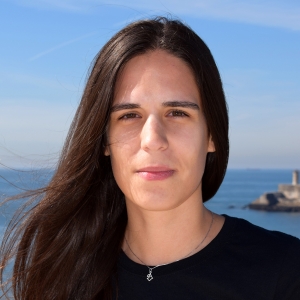
Marina Machado
Researcher
Graduated in Marine Biology holds a PhD degree in Animal Sciences granted by ICBAS-University of Porto, she is currently and auxiliary researcher in A2S team. Her main research line is dedicated to the development of nutritional strategies that could enhance fish overall health and vaccination efficiency. Her most recent research has been focus on the study of the multi-action mechanisms of viperin, an antiviral protein and the role of methionine in fish inflammation and antiviral response.
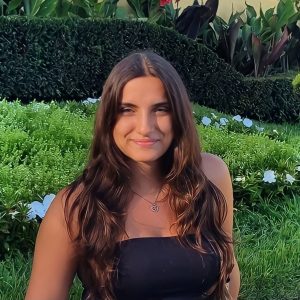
Marta Macedo
Technician
Marta has a degree in Biology and Geology from the University of Minho a master’s degree in Marine Sciences – Marine Resources, with a specialization in Aquaculture and Fisheries at the Instituto de Ciências Biomédicas Abel Salazar. Her thesis was part of the Blue Bioeconomy Pact project. Her areas of interest include the welfare of fish in aquaculture, as well as increasing their immunity through nutrition.
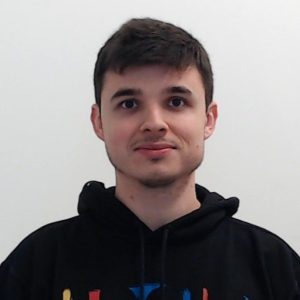
Paulo Carvalho
Technician
Paulo is graduated in Biomedical Engineering from the University of Minho and in 2023 he obtained a master’s degree in Biomedical Engineering – specialization in Clinical Engineering. After graduating he took up a research fellowship at the University of Minho’s CEB, where he honed his laboratory skills. He has experience in microbiology and protein expression and purification.
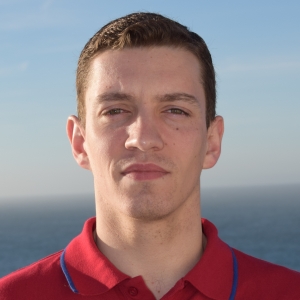
Paulo Santos
PhD student
Paulo holds a master degree in Veterinary Medicine by the University of Porto since 2017 and a master in Marine Biology – Marine Resources at Institute of Biomedical Sciences Abel Salazar concluded in 2020. He collaborates with the group since 2017, being involved in several projects related with fish immune status and welfare, with special emphasis on the immune response to infectious processes. Paulo is currently developing is PhD focusing on immune enhancement and disease resistance through functional nutrition in early life stages of European seabass and Senegalese sole.
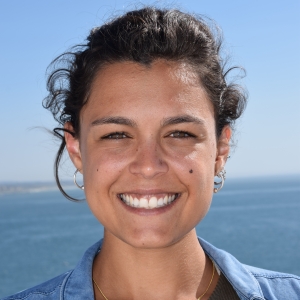
Rita Azeredo
Researcher
Rita is graduated in Aquatic Sciences and holds a PhD degree in Biology granted by the Faculty of Sciences – University of Porto. She is currently an auxiliary researcher in the Aquatic Animal Health team. Her research focus has been to determine immunomodulatory and neuroendocrine effects of amino acids through dietary supplementation in aquafeeds, as a strategy to enhance farmed fish health and welfare. She has a particular interest in tryptophan and the mechanisms through which this amino acid modulates fish brain-gut axis, including neuroendocrine, immune and serotonergic mechanisms.
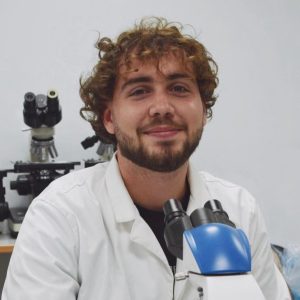
Romain Chaigne
MSc Student
Romain Chaigne is a master’s student in the EU-CONEXUS JMPMB, a program created by a consortium of coastal European universities with a specialization in marine biotechnology. With a focus on aquaculture, he joined the Aquatic Animal Health team at CIIMAR in January 2025 to conduct his master’s thesis. His research focuses on the identification and analysis of biomarkers associated with different acute stress conditions in European sea bass as part of the IGNITION project
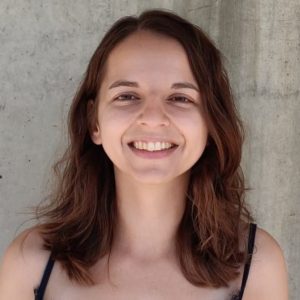
Sara Jorge
PhD student
Sara has a bachelor degree in Aquatic Sciences and a master degree in Aquatic Biological Resources. Her current work aims to establish different non-terminal matrices to measure cortisol in zebrafish under acute and chronic stressful situations. Sara has expertise in fish care, animal facility maintenance, fish sampling, histological techniques, performance and analysis of behavioural tasks, anaesthesia administration, molecular biology techniques, determination of fish zootechnical performance, digestive function and formulation and analysis of experimental diets. Her main research interests are animal behavior, anesthesia, fish physiology, nutrition, health, and welfare.
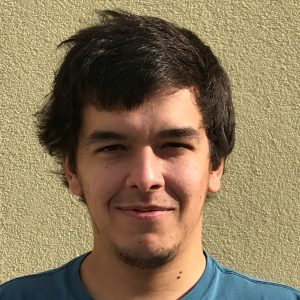
Simão Correia
PhD student
Simão graduated in Biology at the University of Aveiro and concluded his MSc degree in Applied Biology at the same institution in 2019. Simão participated in the COCKLES project, funded by Interreg Atlantic, with a research grant, and was member of the COACH project team, funded by the Ocean Conservation Fund. Additionally, Simão holds a MSc degree in Data Analysis and Computational Statistics from FCUP. Currently, Simão is a PhD student collaborating between CESAM, CIIMAR, USC (Spain), and UO (New Zealand). His main areas of interest revolve around the behavioural and evolutionary ecological processes involved in host-parasite interactions.
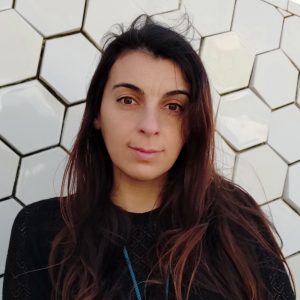
Tânia Pereira
Researcher
Tânia is a CIIMAR project manager and communicator, with a PhD in environmental and marine sciences by the University of Algarve (2015). Her research background is macroalgae physiology, cultivation and reforestation, and improvement of Integrated Multi Trophic Aquaculture (IMTA) systems. She also has experience in the science-policy-society interface.
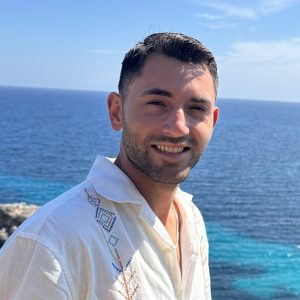
Tiago Lopes
PhD student
Tiago has a BSc in Biology from University of Porto in 2015 and holds a MSc degree in Marine Sciences – Marine resources from ICBAS-UP since 2017. His research for MSc thesis was performed under a joint research between CIIMAR, SPAROS and GIFAS (Altantic salmon farm) and focused on Atlantic salmon immuno-nutrition. He is now employed by GIFAS, Norway, where he will conduct his Industrial PhD together with CIIMAR, Skretting, University of Nordland and Akvaplan Niva. His research focuses on the welfare improvement through immune-nutrition of lumpfish, a species used as biological control of sea lice in Atlantic salmon farming.
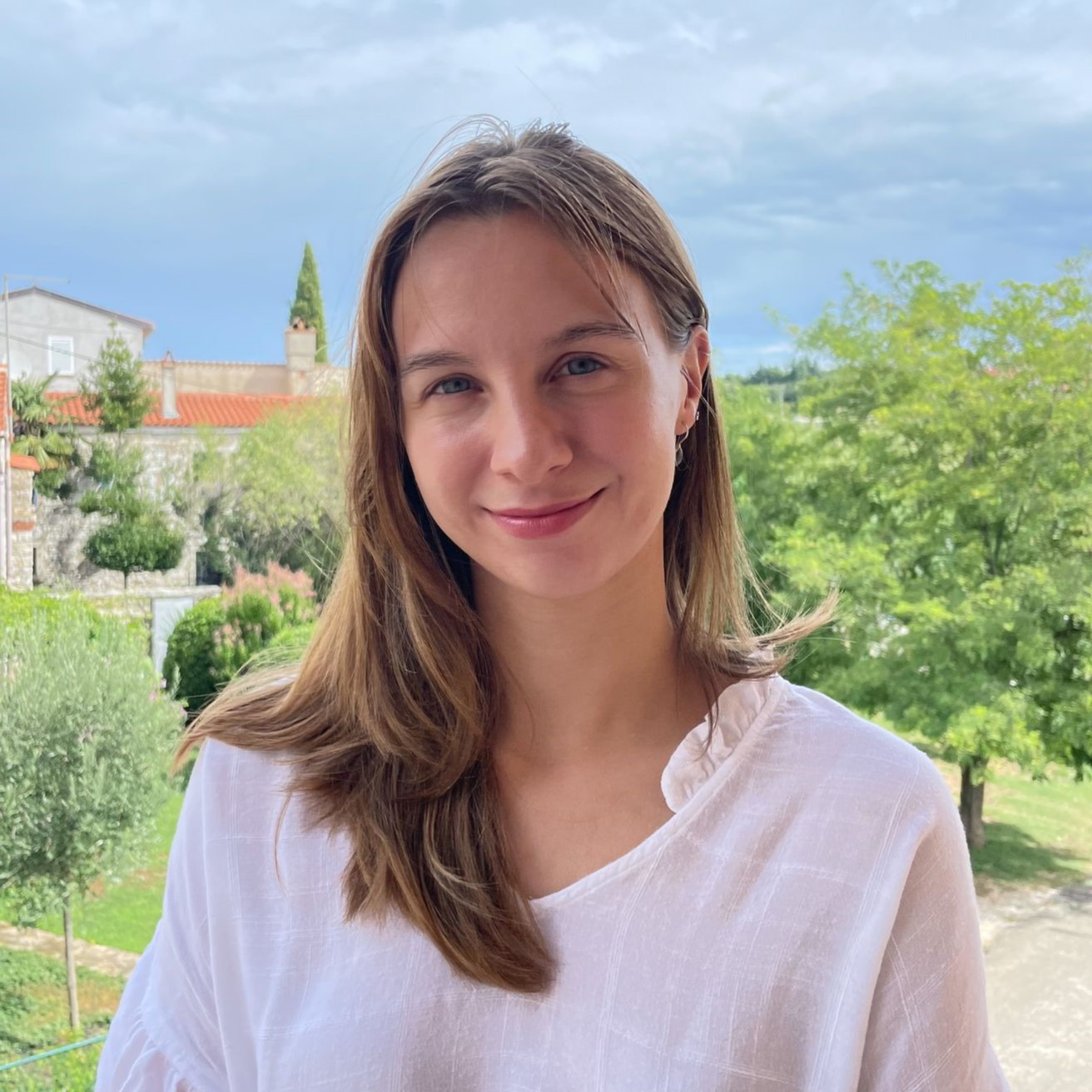
Tonka Buha
PhD student
Currently, she is a PhD student working on novel health biomarkers and
IT tools to assess fish health and welfare within the framework of the IGNITION project.